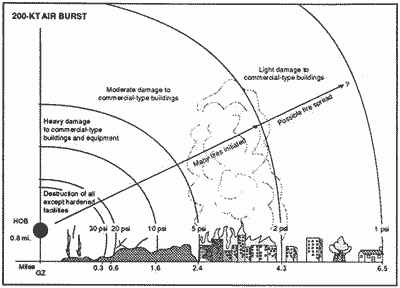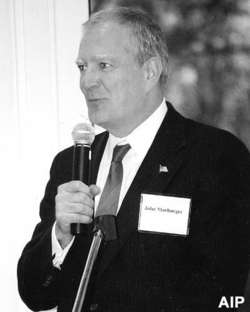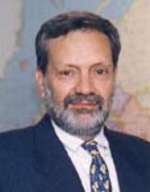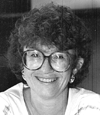
AUGUST 2004
George Bush and
Nuclear Science in focus

Bush Gets Blast From 4000 US Scientists
The Sydney Morning Herald - UK
7-9-4
(Los Angeles Times) -- More than 4000 scientists -
including 48 Nobel Prize winners and 127 members of the
US National Academy of Sciences - have accused the Bush
Administration of distorting and suppressing science to
suit its political goals.
"Across a broad range of policy areas, the
Administration has undermined the quality and
independence of the scientific advisory system and the
morale of the Government's outstanding scientific
personnel," the scientists said in a letter on
Thursday.
The Administration has often been accused of misusing
science to further its policy aims.
Administration officials rejected the criticism, just as
they did when the same letter was published in February bearing the names of
62 prominent scientists.
February bearing the names of
62 prominent scientists.
John Marburger, director of the Office of Science and
Technology Policy, said the letter and a report published
simultaneously by the Union of Concerned Scientists made
"sweeping generalisations based on a patchwork of
disjointed facts and accusations that reach conclusions
that are wrong and misleading".
"This Administration values and supports science,
both as a vital necessity for national security and
economic strength and as an indispensable source of
guidance for national policy," Dr Marburger said.
The scientists cited examples of esteemed colleagues
denied seats on advisory panels, apparently because of
their political beliefs.
Presidential Science
Adviser John Marburger
Gerald Keusch, who left his post at the National
Institutes of Health as associate director for
international research and director of the Fogarty
International Centre, said the office of the Health and
Human Services Secretary, Tommy Thompson, had rejected 19
of his 26 candidates for the centre's board. Among the 19
was a Nobel laureate who, Dr Keusch said he was told, was
turned down because his name had appeared in newspaper
advertisements criticising the Administration for
manipulating science.
Effective January 1, 2004, Keusch will hold the newly created positions of assistant provost for  global health at Boston
University Medical Center (BUMC) and associate
dean for global health at the Boston University
School of Public Health (BUSPH). He will also
serve as professor of international health at
BUSPH, and professor of medicine at Boston
University School of Medicine. global health at Boston
University Medical Center (BUMC) and associate
dean for global health at the Boston University
School of Public Health (BUSPH). He will also
serve as professor of international health at
BUSPH, and professor of medicine at Boston
University School of Medicine.“The recruitment of Dr. Keusch vaults Boston University and BUSPH into the first rank of programs that are working to address the increasingly important and difficult challenges of global health,” said Chobanian. “His extensive international experience and research background will be invaluable to his colleagues and to our students as we build on an already outstanding program in global health at BU Medical Center and across the University.” Keusch has played a central role in international health research and policy issues at the NIH since 1998. Under his leadership, the programs of the Fogarty International Center expanded to address not only pressing global issues in infectious diseases, but also critical cross-cutting issues such as the ethical conduct of research, intellectual property rights and global public goods, and the impact of improved health on economic development. Prior to joining the NIH, Keusch served as faculty associate and director of the Health Office of the Harvard Institute for International Development. He also has served as professor of medicine and chief of the Division of Geographic Medicine and Infectious Diseases at Tufts University School of Medicine and the New England Medical Center. “Dr. Keusch’s diverse experience in research — from the bench to the field — and its application to critical global health issues, combined with his policy-making experience at the NIH and his international contacts at the World Health Organization, the World Bank and all the other major global players, make him uniquely qualified to lead our University-wide commitment to address the great disparities in health between rich and poor nations,” said Robert Meenan, M.D., M.P.H., M.B.A, dean of BUSPH. Keusch, a graduate of Columbia College and Harvard Medical School, is board certified in internal medicine and infectious diseases. He is the author of more than 300 original publications, reviews and book chapters, and is the editor of eight scientific books. He has received the Squibb, Finland and Bristol awards of the Infectious Disease Society of America and has delivered numerous lectures including the Health-Clark Lecture at the London School of Hygiene and Tropical Medicine, the Wesley Spink Lecture at the University of Minnesota, and the William Kirby Lecture at the University of Washington. He is an elected member of the Institute of Medicine of the National Academy of Sciences. His research has ranged from the molecular pathogenesis of tropical infectious diseases to field research in nutrition, to immunology and host susceptibility, to the epidemiology and pathogenesis of treatment of tropical infectious diseases and HIV/AIDS-related wasting syndrome in African patients. |
Dr Keusch's nominees for the board, which advises on
which research should get federal grants, were accepted
during the Clinton administration, but once President
George Bush took over his nominations "were rejected
one after another".
Among Dr Keusch's nominees who were rejected was Jane
Menken, a population expert at the  University of Colorado who
served on advisory boards under President Ronald Reagan
and the first President George Bush.
University of Colorado who
served on advisory boards under President Ronald Reagan
and the first President George Bush.
"I was being renominated and I was turned
down," Dr Menken said. "No official ever gave
me any reason." Contrary to Bush Administration
policy, Dr Menken supports the availability of safe,
legal abortions.
The Health and Human Services spokesman, Bill Pierce,
said there was no evidence that the Bush Administration
was manipulating government science to bolster its policy
aims.
Janet Rowley, a member of the President's Advisory
Council on Bioethics, said she had seen examples of the
misuse of science. "This Administration distorts
scientific knowledge on stem
cell research, which makes it increasingly difficult to
have an honest debate in a field that holds promise for
treatment of many serious diseases," she said.
Copyright © 2004. The Sydney Morning Herald.
http://www.smh.com.au/articles/2004/07/09/1089000357924.html?oneclick=true
Israel to Distribute Anti-Radiation Pills
Thu Jul 22, By MARK LAVIE, Associated
Press Writer
TEL AVIV, Israel - Soldiers
will begin distributing radiation sickness pills in
cities near Israel's two nuclear reactors next month, the
Defense Ministry said Thursday.
Defense Minister Shaul Mofaz informed the Cabinet of the project at a session on Sunday, the ministry said.
Distribution of the pills is to begin Aug. 8 in Dimona and Yavne, according to a report in Bamahane, a weekly publication for soldiers.
The pills are an iodine compound that blocks absorption of radioactive material by shutting down the thyroid gland. Bamahane reported that Israel has had the pills for decades, but decided to distribute them now to cut down on reaction time in case of a nuclear accident or attack.
The Maariv daily quoted unnamed security sources as saying that the decision does not indicate a change in the level of risk of a radiation incident.
In June, Israel announced it would collect the gas masks handed out to civilians over the past decade as protection against a possible chemical or biological attack from Iraq . The military said it decided to collect the masks because the threat from Iraq had been reduced after Saddam Hussein ) was removed from power.
In 1991, Iraq fired 39
Scud missiles with conventional warheads at Israel.
Bush's Foreign Fantasy
The
president thinks the world is safer than it was three
years ago. Which world is he living in?
ByFred Kaplan
PostedFriday, July 16, 2004, at 2:40
PM PT
"Safer": a slippery
concept
Earlier this week, at the Oak Ridge
National Laboratory, home of the Y-12 nuclear-weapons
facility, in Tennessee, President Bush gave one of his
best-written speeches. This was his "America is
safer" speech, and we will no doubt hear
variations on it many times in the next four months. In
it, he lists the world's hot spots, one by one
(Afghanistan, Iraq, Libya, Saudi Arabia, Pakistan),
contrasts what each was like three years ago with what
it's like now, and concludes each success story with the
refrain, "and the American people are safer."
After the last item on the checklist, he expands the
viewfinder, exclaiming, "and America and the world
are safer."
It's a very effective speech (the
Oak Ridge scientists greeted each repetition with stormy
applause), unless you take a closer look at the examples
it cites—in which case questions of comparative
safety (are you safer now than you were three years ago?)
seem at best ambiguous and in some cases downright
depressing.
The "slam dunk" case
would seem to be Libya. Three years ago, Muammar Qaddafi
was acquiring materials for nuclear weapons. Today, he's
surrendered the materials, invited in international
inspectors, and stepped into the civilized world. Libya
has a particular resonance for Oak Ridge, because it's
the national lab where Qaddafi's nuclear materials are
now stored.
Without question, any action that
keeps Qaddafi away from an A-bomb is an unequivocal plus.
But just what did turn him away from such ambitions? And
how close was he to building a weapon, anyway?
In the past, Bush has suggested
that Qaddafi changed course because he saw what happened
to Saddam and wondered if his own crown might be next.
Bush implied as much at Oak Ridge: "[T]he Libyan
government saw the seriousness of the civilized world and
correctly judged its own interests." It seems
plausible that fear of impending invasion may have played
a role in Qaddafi's calculations. But there are a few
facts that weaken this theory.
First, when Bush first touted
Libya's disarmament in his State of
the Union address last January, he heralded the
move as the result of "nine months of intense
negotiation" involving Libya, the United States, and
Britain. Qaddafi made his announcement in December.
"Nine months" suggests the talks started the
previous March. That was before the war in Iraq began.
At the same time, Bush said at Oak
Ridge, the crucial step came when U.S. and British
intelligence tracked a large shipment of nuclear
equipment on a German-registered cargo ship bound for
Tripoli. They informed the Germans, who diverted the ship
to an Italian port, where the cargo was confiscated. This
incident took place just last autumn—months
afterSaddam's toppling. If Qaddafi was trembling from the
great display of American power, his fear didn't stop him
from continuing his quest for black-market nuclear gear.
So, Qaddafi was negotiating about
giving up his nuclear ambitions before the war in Iraq,
yet he furtively persisted in these ambitions after
Saddam's regime had tumbled. Maybe his nuclear
gambits—the arming and the disarming—had little
to do with the war, after all.
How close was Qaddafi to getting a
bomb—that is, how much disarmament did his sacrifice
involved? Mohammad ElBaradei, the director of the
International Atomic Energy Agency, after examining the
cache and the facilities, said Libyas nuclear program was
"at a very initial stage." Not just an initial
stage, a very initial stage.
David
Albright,
a specialist at the Institute for Science and
International Security, breaks it down. Libya had ordered
10,000 centrifuges but almost none of the associated
components needed to connect them into a spinning cascade
for enriching uranium hexafluoride—that is, almost
none of the stuff you'd need to turn uranium into
bomb-grade material, much less into a bomb.
It looks like Qaddafi knew his
nuclear program was going nowhere—he'd tried it once
before, in the 1980s, to no avail. Then he got caught.
Meanwhile, his economy was tanking. And maybe he sensed
it would be a good idea, for now, to chummy up to the
West. So, he made a big deal of giving up something he
didn't really have, with hopes of reaping a big reward in
return.
That's fine. But it had little, if anything, to do with
what Bush calls America's "new approach in the
world" after 9/11.
About Afghanistan, Bush's speech
celebrated the crushing of the Taliban and the new reign
of Hamid Karzai, "a good and just president."
The military defeat of the Taliban was indeed Bush's
singularly great accomplishment. But what happened
afterward? The U.S. troops left in place—even with
NATO assistance—were too paltry to stabilize the
territory. As a result, warlords are once again slicing
up the country. Elections have been put off due to poor
security. Poppy growth and subsequent heroin exports to
Europe are at nearly an all-time high. Taliban fighters
are gaining ground here and there. And the eastern border
to Pakistan, not at all secure, almost certainly still
harbors Osama Bin Laden.
On Iraq, Bush—as usual—was very careful with his
language. Three years ago, he told the Oak Ridge
scientists, Iraqwas ruled by "a proven mass murderer
who refused to account for weapons of mass murder."
(Note: "weapons of mass murder," not
"weapons of mass destruction"; and
"refused to account for," not "refused to
disarm.") Now, Bush went on, Iraq is "becoming
an example of reform to the region." Because America
"helped to end the violent regime of Saddam Hussein,
and because we're helping to raise a peaceful democracy
in its place, the American people are safer."
As the pundits say, that remains to
be seen. Maybe Iraq will emerge from the chaos as an
exemplar of reform; maybe it will slide further into
chaos and only encourage neighboring tyrannies to
intensify their clampdowns. Meanwhile, terrorists, who it
turns out didn't enjoy safe haven in Iraq before the war,
have carved out camps in its aftermath. Leading Shiites
are forming unsettling alliances with Iran. The Kurds are
balking at any incursions on their autonomy. And, in the
first month of Iraqi sovereignty, the most cherished
consumer item for many citizens—thousands line up
for one—is a passport to get the hell out of there.
Another case of progress, according to Bush's speech, is
Saudi Arabia's decision to join us in the war on terror
and to crack down on the jihadist "charities"
in its midst. But this came about (to the extent it truly
has come about) only after terrorist bombers mounted
attacks in Riyadh. Bush acknowledges the Saudis'
belatedness on this matter. And, no question, better late
than not at all. Still, the shift (again, to the extent
it's genuine, lasting, and effective) has little to do
with Bush's foreign policy, which had tolerated the
Saudis' diffidence before and after 9/11.
Most troublesome of all are Bush's
claims about nuclear proliferation. Yes, Western
intelligence agencies traced and shut down A.Q. Khan's
vast black-market supply network and even persuaded the
Pakistani government to relieve him of his duties (if not
to punish him personally). Good has also come of the
Proliferation Security Initiative, a truly multilateral
effort to police nuclear trafficking.
However, the world's most alarming
and concrete instance of proliferation—the open
emergence of North
Korea as
a nuclear state—has been appallingly mishandled by
the Bush administration. For over a year, Bush refused
even to discuss the matter with the North Koreans,
despite their clear desire to negotiate. A month ago, he
finally offered a deal nearly identical to the deal the
North Koreans offered us at the beginning of
2003—but it's too late. They have since moved much
closer to mass production of A-bombs, and so they've
stiffened their terms. Possibly even more than the war in
Iraq, this could go down as Bush's deepest diplomatic disaster.
This says nothing of the frustrated
effort to stall Iran's nuclear program. Bush didn't say
much about that, either.
The key failure is that Bush said
nothing—and has planned nothing—about devising
a general international policy toward nonproliferation.
Police enforcement can go only so far. An effective
policy must deal with the reasons certain nations want to
go nuclear—and the incentives, as well as the
punishments, that might deter them from doing so.
Toward the end of his speech, Bush
said this:
Three years ago, the world was very
different. Terrorists planned attacks, with little fear
of discovery or reckoning. Outlaw regimes supported
terrorists and defied the civilized world. …
Weapon-proliferators sent their deadly shipments. …
The world changed on September the 11th,
and since that day, we have changed the world. We are
leading a steady, confident, systematic campaign against
the dangers of our time. Today, because America has acted
and because America has led, the forces of terror and
tyranny have suffered defeat after defeat, and America
and the world are safer.
Stirring words. But what world is
he talking about?
* Fred Kaplan writes the "War
Stories" column for Slate
All
International news articles www.apm-ram.org